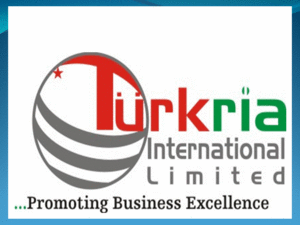KANO (AFP) – The leader of the radical Islamist group Boko Haram has rejected the idea of any potential amnesty deal, which the country’s presidency said it would study in a bid to curb a bloody insurgency, in a statement obtained by AFP Thursday.
Abubakar Shekau, the purported head of Boko Haram who has been designated a global terrorist by the United States, claimed his group had “not committed any wrong to deserve amnesty.”
“Surprisingly, the Nigerian government is talking about granting us amnesty. What wrong have we done? On the contrary, it is we that should grant you pardon,” he said, listing what he described as the state’s “atrocities” against Muslims.
The Hausa language audio recording was distributed by email in a manner consistent with previous Boko Haram messages, and the voice was similar to that of previous Shekau statements.
President Goodluck Jonathan last week formed a panel to look at the possibility of offering an amnesty deal to the Islamists, whose insurgency has left more than 3,000 people dead since 2009, including killings by the security services.
Jonathan has come under intense pressure over the issue, with politicians from the country’s violence-torn north as well as Nigeria’s highest Muslim spiritual figure, the Sultan of Sokoto, calling for amnesty.
The panel, reportedly to be composed of national security officials, northern leaders and others, is due to report later this month.
The move has been widely debated in Nigerian media in recent days.
Boko Haram has claimed to be fighting for an Islamic state in Africa’s most populous nation and largest oil producer.
The group also claimed the February 19 kidnapping of a French family of seven over the border in Cameroon. Their whereabouts remain unknown.
Boko Haram’s demands however have repeatedly shifted and the group is believed to include various factions in addition to imitators.
Nigeria offered an amnesty to militants in the southern oil-producing Niger Delta region in 2009, which has been credited with greatly reducing unrest there, though oil theft has since flourished.
Violence blamed on Boko Haram has been concentrated in the mostly Muslim north.
Christian and Muslim civilians, the security services and other symbols of authority have been among the group’s victims.
Abubakar Shekau, the purported head of Boko Haram who has been designated a global terrorist by the United States, claimed his group had “not committed any wrong to deserve amnesty.”
“Surprisingly, the Nigerian government is talking about granting us amnesty. What wrong have we done? On the contrary, it is we that should grant you pardon,” he said, listing what he described as the state’s “atrocities” against Muslims.
The Hausa language audio recording was distributed by email in a manner consistent with previous Boko Haram messages, and the voice was similar to that of previous Shekau statements.
President Goodluck Jonathan last week formed a panel to look at the possibility of offering an amnesty deal to the Islamists, whose insurgency has left more than 3,000 people dead since 2009, including killings by the security services.
Jonathan has come under intense pressure over the issue, with politicians from the country’s violence-torn north as well as Nigeria’s highest Muslim spiritual figure, the Sultan of Sokoto, calling for amnesty.
The panel, reportedly to be composed of national security officials, northern leaders and others, is due to report later this month.
The move has been widely debated in Nigerian media in recent days.
Boko Haram has claimed to be fighting for an Islamic state in Africa’s most populous nation and largest oil producer.
The group also claimed the February 19 kidnapping of a French family of seven over the border in Cameroon. Their whereabouts remain unknown.
Boko Haram’s demands however have repeatedly shifted and the group is believed to include various factions in addition to imitators.
Nigeria offered an amnesty to militants in the southern oil-producing Niger Delta region in 2009, which has been credited with greatly reducing unrest there, though oil theft has since flourished.
Violence blamed on Boko Haram has been concentrated in the mostly Muslim north.
Christian and Muslim civilians, the security services and other symbols of authority have been among the group’s victims.



.jpg)
















